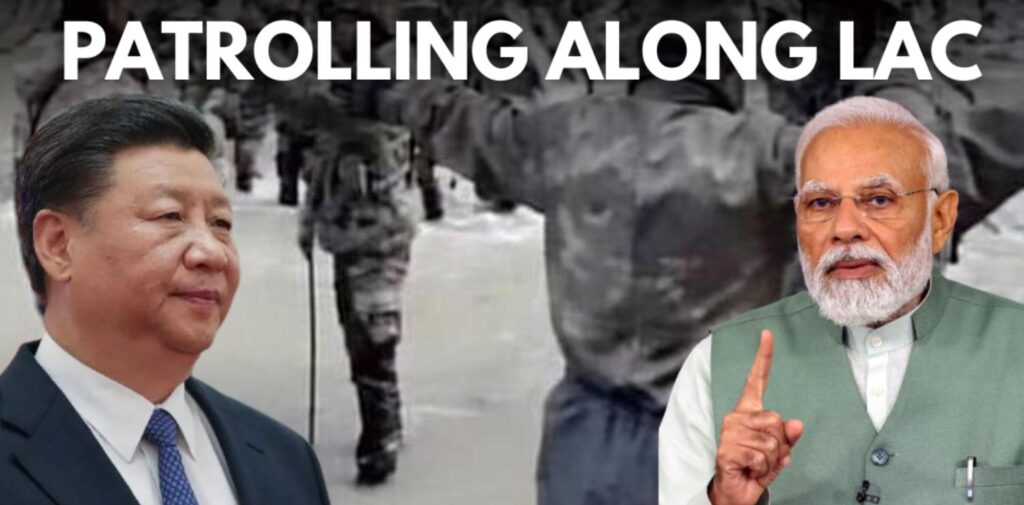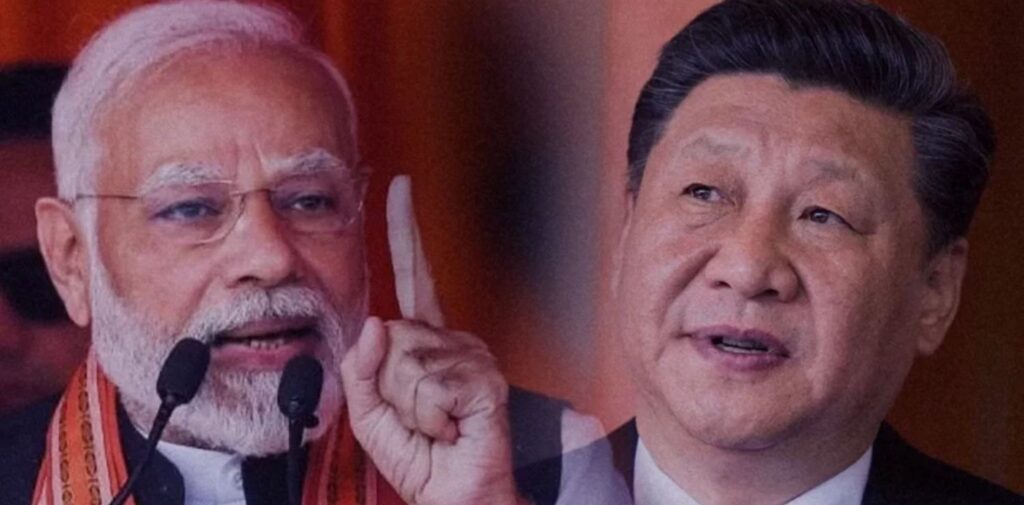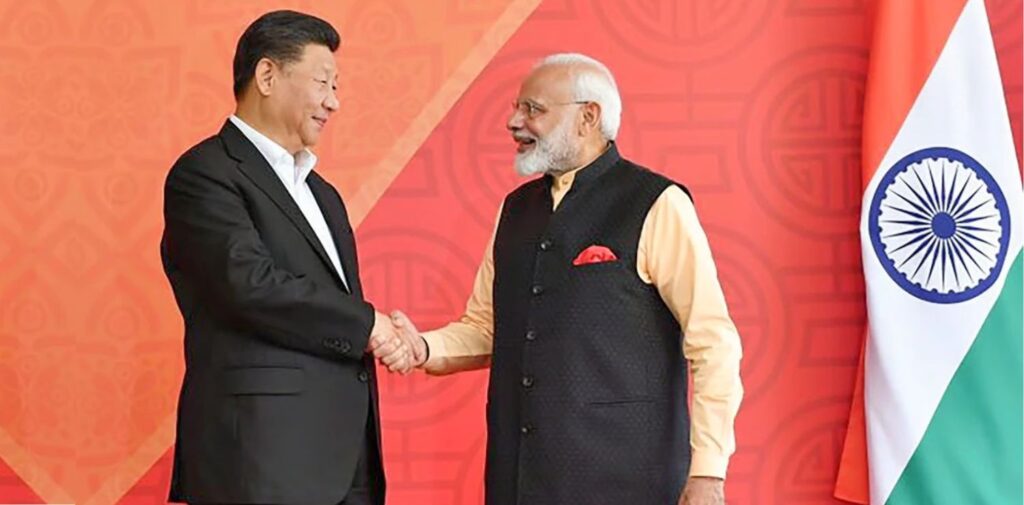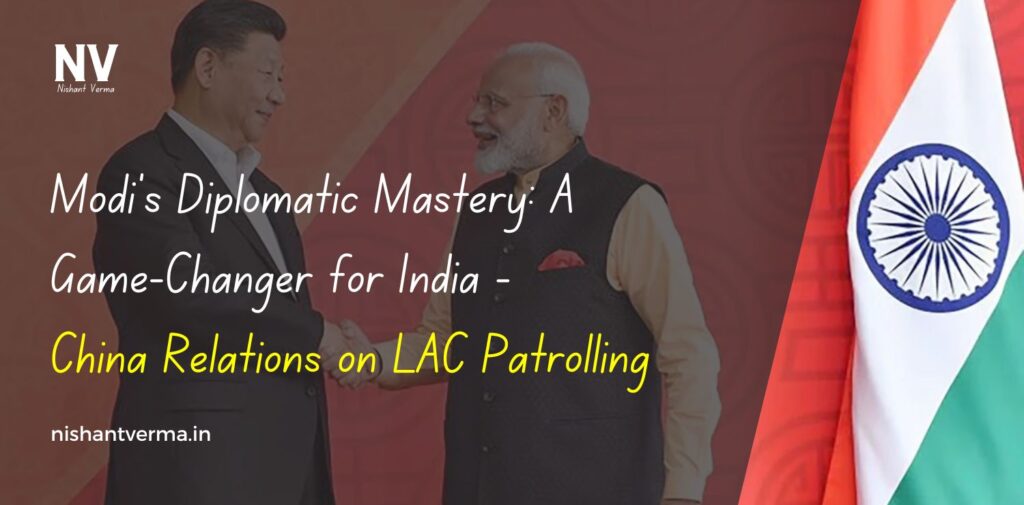In a significant diplomatic breakthrough, Prime Minister Narendra Modi successfully negotiated an agreement with China regarding the patrolling protocols along the Line of Actual Control (LAC). This development not only showcases Modi’s adeptness in international diplomacy but also reflects a new chapter in India-China relations, fostering a climate of stability and cooperation in a region marked by tension and rivalry.
The Context of the Agreement
The LAC has been a contentious point between India and China for decades. Border skirmishes, military standoffs, and differing perceptions of territorial boundaries have led to heightened tensions. The recent clashes in Ladakh highlighted the urgent need for a structured mechanism to manage border incidents. Recognizing the critical nature of these issues, Modi initiated discussions with Chinese President Xi Jinping, aiming to create a framework that would allow both nations to patrol their respective territories without escalating tensions.

Modi’s Diplomatic Mastery
Modi’s approach has always been characterized by a blend of assertiveness and engagement. In his talks with Xi, he emphasized the importance of mutual respect and understanding, advocating for a solution that not only protects India’s sovereignty but also fosters peace in the region. Modi’s strategy hinged on three core principles:
- Dialogue Over Conflict: Rather than adopting an aggressive stance, Modi chose dialogue as a primary tool. This willingness to engage in conversation, even in the face of provocations, signals India’s commitment to peace while standing firm on its territorial claims.
- Bilateral Cooperation: The agreement emphasizes the need for coordinated patrolling, which can reduce the chances of misunderstandings that often lead to conflict. By establishing clear protocols, both nations can navigate the complex terrain of their border more effectively, fostering a spirit of cooperation.
- Long-term Vision: Modi’s vision extends beyond immediate border issues. He aims to establish a framework that encourages long-term stability in the region. By addressing the root causes of conflict and focusing on collaborative security measures, Modi is laying the groundwork for future cooperation.

The Agreement: Key Highlights
The newly established patrolling agreement outlines specific protocols for both nations:
- Regular Communication: The agreement mandates regular communication between military commanders to discuss border activities, ensuring that both sides are informed and can address potential flashpoints before they escalate.
- Joint Patrolling Exercises: Both countries will conduct joint patrolling exercises, which will serve to build trust and mutual understanding among troops stationed along the LAC.
- Incident Management Protocols: In the event of a confrontation, the agreement establishes clear procedures for de-escalation, minimizing the risk of violent encounters.
These measures not only aim to prevent conflict but also create an environment conducive to broader discussions on trade, investment, and regional stability.
Benefits for India
- Enhanced Security: One of the most immediate benefits of this agreement is the enhanced security it provides to India. By establishing clear protocols for patrolling, India can better monitor its borders, ensuring that any unauthorized incursions are addressed promptly. This proactive approach to border management strengthens India’s defence posture and deters potential aggression.
- Strengthening of Diplomatic Ties: Modi’s successful negotiation has the potential to thaw relations that have been icy for years. Improved diplomatic ties with China could lead to greater cooperation on various fronts, including trade, climate change, and regional security. This alignment could also result in a more stable geopolitical environment, benefiting not just India but the entire region.
- Domestic Political Gains: The agreement serves as a significant achievement for Modi on the domestic front. By showcasing his ability to navigate complex international challenges and secure a favourable outcome, he reinforces his image as a strong and capable leader. This success could bolster his political capital, particularly in light of upcoming elections, as it addresses national security concerns—an issue that resonates deeply with voters.
- Economic Opportunities: A more stable border environment opens avenues for economic growth. With reduced tensions, trade routes can be optimized, potentially leading to increased commerce between India and China. Additionally, a cooperative approach to border management may attract foreign investment, further stimulating economic development in border areas.

Modi’s ‘Magic’ in Action
The success of this agreement can be attributed to Modi’s unique blend of leadership qualities. His charisma, diplomatic skills, and deep understanding of international relations have been instrumental in navigating the complexities of India-China ties. Modi’s rapport with Xi Jinping also played a crucial role; their interactions have often transcended formal diplomatic channels, fostering an atmosphere of trust and collaboration.
Moreover, Modi’s willingness to engage with China on critical issues reflects his broader strategy of balancing assertiveness with dialogue. This pragmatic approach not only addresses immediate concerns but also paves the way for a more comprehensive understanding between the two nations.
Conclusion: India-China relations
Prime Minister Modi’s successful negotiation of the LAC patrolling agreement marks a significant milestone in India-China relations. By prioritizing dialogue and cooperation, he has laid the foundation for a more stable and secure border, enhancing India’s national security while promoting economic opportunities. This agreement stands as a testament to Modi’s diplomatic acumen and his vision for a peaceful, prosperous future for India.
As the global landscape continues to evolve, India’s ability to navigate complex relationships with its neighbours will be crucial. The LAC patrolling agreement is not just a win for Modi but a significant step forward for India, setting a positive precedent for future engagements with China and other regional players.




